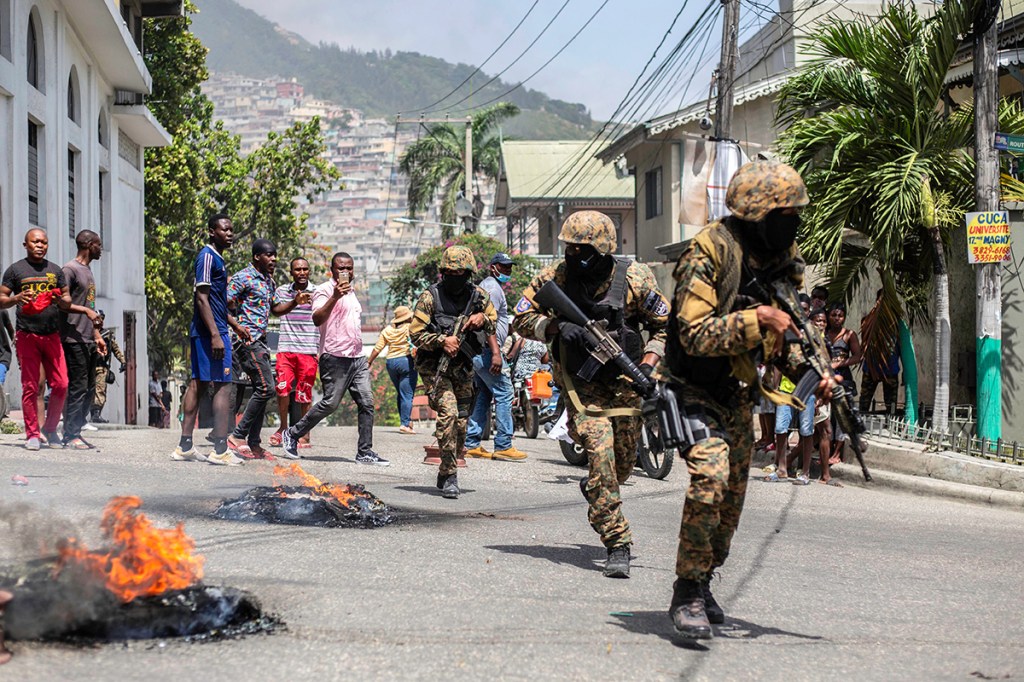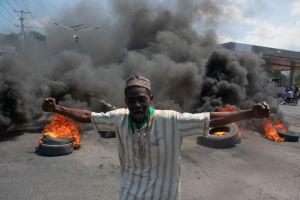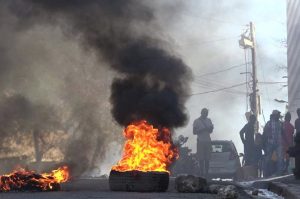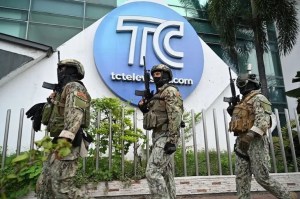There was a time when Haiti was at the center of the New World. It was one of the richest islands on the globe, producing cane sugar for the sweet tooth of Europe. It cultivated coffee, cotton and rice, and it produced rum. The Pearl of the Antilles, the island stood at the gateway to all the resources of South and Central America. Mexico, with all its gold, lay just beyond Haiti’s northernmost cape. Great powers of the era — France, Britain, Germany, and the United States — vied for political and military control.
Now Haiti is a failed state. Failed by the West after centuries of violence and resource extraction and failed by its own leaders who have also enriched themselves off the backs of their compatriots. Last week, the country’s president Jovenel Moïse was assassinated. A group of gunmen stormed his home in the capital Port-au-Prince. He was shot at least 12 times.
Moïse will not be missed. But Haitians will see unsettling parallels with the removal of their first democratically elected president. Jean-Bertrand Aristide was ousted not once but twice in military coups greenlit by France and the US. Aristide had preached a heady program of popular liberation theology, of decent poverty rather than starvation, illiteracy, and unemployment. Needless to say, that program has not yet been realized.
‘The beneficiaries of the death of Moïse are, if history is any guide, everyone except the fallen president. His assassination will provoke a feast’
Aristide’s ideas threatened the stranglehold that eleven families, collectively known as Haiti’s ‘business mafia’, have on the economy. These families were the power players during the post-earthquake electoral fiddling (monitored by the US and the Organization of America States) that brought Haitians first Michel Martelly and then Moïse himself, neither one elected in anything resembling free and fair elections. While the world has watched as Haiti is tormented by one crisis after another, for the eleven families, not much has changed. They were in charge before and during Moïse’s reign and they are still in charge now. At least for the moment.
The Haitian police, who never managed to arrest or try a suspect in all the murders that took place under Moïse’s rule, have now swiftly gathered up a squad of hapless Colombian security guards as prime suspects. But there are other theories about whodunit, or as the French and Haitians like to say les auteurs intellectuels du meurtre.
Among them, the most plausible: in recent months, Jovenel Moïse, who had already destroyed the institutions of Haitian governance (legislature, judicial system, municipal civic structures), was ruling by decree and was trying to rewrite the Haitian constitution to give himself more powers. He had canceled some of the most lucrative government contracts and customs franchises of the 11 families of the business mafia. Moïse said recently that he planned to reveal evidence of their extreme corruption. This cannot have sat well with them. They saw a future dictator taking them down and with them their financial fiefdoms. Voilà, some credible auteurs, with a motive and both the guts and the means to make things happen.
Every day the plot continues to thicken: the Colombian hit squad; an anti-terrorist security firm that hired the Colombians; a quiet but scheming Haitian doctor in Miami; a luncheon where the assassination was planned; a cellphone call by one of the Colombians that ended when he was killed in a hail of gunfire by the Haitian police; whispered, inconclusive testimony on Twitter from the hospital bed of Moïse’s injured widow; and finally the suggestion that several of the Colombians were one-time informers for the Drug Enforcement Agency. No doubt a tall dark man in a top hat, wearing a cloak and a handlebar mustache, will soon be added to the story line. Sometimes you begin to think there must be a roomful of Haitian television writers somewhere concocting this thing.
Meanwhile, three unlikely interim presidential hopefuls have emerged, each more unpalatable than the last, and none of them with the legal standing to take on the presidency and calm the country in the wake of Moïse’s killing. Officials from the US Department of Homeland Security, the State Department and the National Security Council went down to Port-au-Prince on Sunday for a lightning visit during in which they spoke to all three of these comedians, as Graham Greene would call them. As an American intelligence expert told the Chilean newspaper La Tercera: ‘The beneficiaries of the death of Moïse are, if history is any guide, everyone except the fallen president. His assassination will provoke a feast.’
In a statement that offers a tiny ray of hope that the US won’t be providing the catering, White House spokesman Jen Psaki said: ‘there is a lack of clarity about the future of political leadership’. She added that the Biden administration remains in contact with ‘a range of leaders in Haiti about how we can assist’. These may be stock phrases, but it’s still notable that the US didn’t immediately rush to the side of one of the three figures.
There are plenty of distinguished, thoughtful, democratic Haitians who were already trying, months before the assassination, to put together an interim consensus government that could work to establish a decent rule for the people of Haiti — a government that would include the people in decision-making, like a real democracy. The new interim government would have to disarm the gangs first and would need expertise to do this, much of which could be Haitian but some of which might need to come from abroad. Certainly it would be better if the international community could support this kind of interim government — supporting but not controlling, she writes, dreamily. The country needs to be taken on a road of Haitians’ choosing: toward a new country that works rather than following Moïse’s counterparts down the miserable alleyway they have chosen.
This article was originally published on The Spectator’s UK website.


















